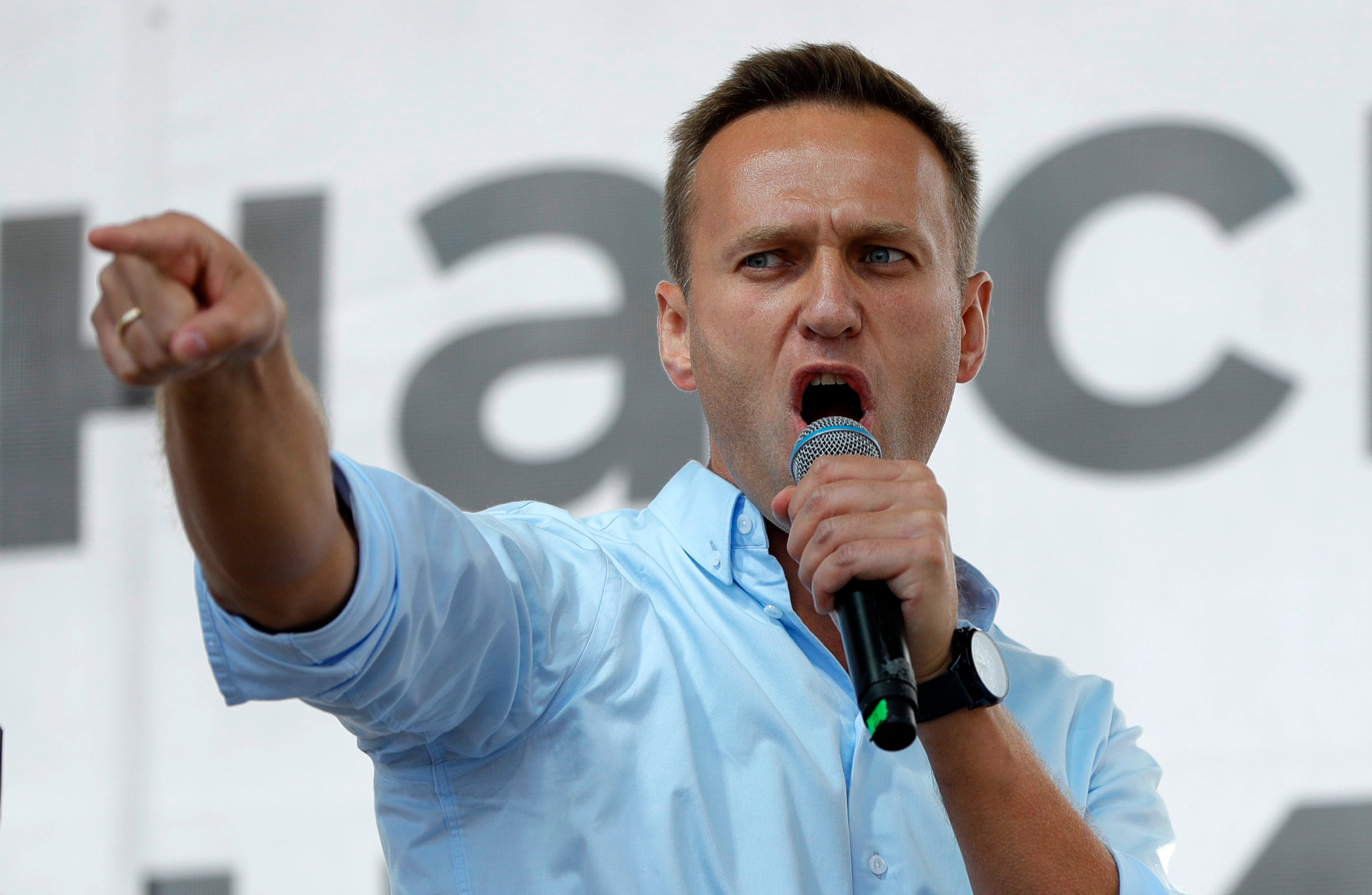Bungling Russian FSB agents poisoned Kremlin critic Alexei Navalny, claims new report
Schoolboy spy errors left a trail of clues for investigators to outline chain of command rising to the top of Russia’s security agency

The strange coincidences began in 2017, a month after Alexei Navalny announced his campaign to run for the presidency. As the Kremlin critic travelled across Russia, operatives from a clandestine chemical weapons squad matched his every move.
They employed the spycraft basics – switching real names for cover names, changing phones and departure airports, and never flying on the exact same flight as the opposition politician. But a series of schoolboy errors – exposed using mobile geolocation and other data – allowed a team of investigative researchers to begin their work.
In time, the reporters would identify the eight men, their links to superiors and chemical weapons experts, and their likely role in the poisoning of Mr Navalny with a nerve agent in August 2020.
Published on Monday, the joint investigation by Bellingcat and Insider, with the cooperation of CNN and Der Spiegel, makes other new claims. It suggests that the August poisoning was in fact the second verifiable attempt on Mr Navalny’s life. Seven weeks earlier, the same Federal Security Service (FSB) squad was in Kaliningrad, western Russia, as Mr Navalny holidayed there with his wife.
Hotel staff alleged that they saw strange things happening in the opposition leader’s room while he was away. Ms Navalny fell ill soon after what the researchers describe as a botched operation.
In total, the report details 37 times that the FSB’s travel plans matched those of Mr Navalny between 2017 and 2020. It identifies the agents doing the shadowing as Alexei Alexandrov, Ivan Osipov, Vladimir Panyaev, Konstantin Kudryavtsev, Alexei Krivoshchekov and Mikhail Shvets. Using metadata from phone records, the report suggests the men answered directly to FSB seniors Oleg Tayakin and Stanislav Makshakov.
Mr Makshakov is a veteran of the Soviet Union’s undeclared chemical weapons programme, and worked at the secret state institute that synthesised the novichok group of nerve agents in the 1970s. According to European governments and the Organisation for the Prohibition of Chemical Weapons (OPCW), these were the substances used against Mr Navalny – and, two years previously, against former double agent Sergei Skripal and his daughter in Salisbury.
Researchers said the metadata showed peaks of communication around key points in the Navalny poisoning timeline: the weeks before the opposition politician travelled to Novosibirsk and then Tomsk in Siberia; around the time the nerve agent was probably left on Mr Navalny’s laundry, likely on the evening of 19 August; the morning of his likely poisoning; and then after his return flight was unexpectedly diverted to nearby Omsk, a move by a quick-thinking pilot that likely saved Mr Navalny’s life.
At least three of the FSB men – Mr Alexandrov, Mr Osipov and Mr Panayev – travelled alongside Mr Navalny to Siberia. But whereas the first two operatives hid behind cover names, Mr Panayev travelled using his real name. Checking his previous travel records gave the researchers what they describe as an “informational dam burst”.
The records showed that Mr Panayev travelled with Alexei Frolov (aka Mr Alexandrov) to Kaliningrad in July 2020 – the moment when Ms Navalny fell suspiciously ill. They also showed Mr Panayev travelling from Omsk to Moscow with an Alexei Alexandrov in September 2017; this coincided once again with Mr Navalny’s movements. Other discoveries followed from there.
Speaking with Russian media on Monday, Roman Dobrokhotov, one of the report’s main authors, said the FSB operatives had been caught out after making “foolish errors”. Mr Alexandrov, for example, was described to have booked flights using a cover name, before rushing to the airport with his main mobile phone switched on. He also turned his phone on again for a brief moment when arriving at his destination in Tomsk.
“They have been undone by their low qualifications,” the investigative journalist said.
The Kremlin has yet to comment on the allegations. Earlier, however, presidential spokesperson Dmitry Peskov responded angrily to another story carried in The Sunday Times. That story, with a much flimsier evidential base, suggested that there had been a second poisoning attempt – not in Kaliningrad but in Omsk before Mr Navalny was evacuated to Germany.
“There is fake news, and there are announcements that are best characterised by the all-encompassing English word bulls**t,” Mr Peskov said, before shutting the conversation down.
The Kremlin has repeatedly asserted that it sees no reason to initiate a criminal investigation into the circumstances of Mr Navalny’s poisoning.
Subscribe to Independent Premium to bookmark this article
Want to bookmark your favourite articles and stories to read or reference later? Start your Independent Premium subscription today.

Join our commenting forum
Join thought-provoking conversations, follow other Independent readers and see their replies